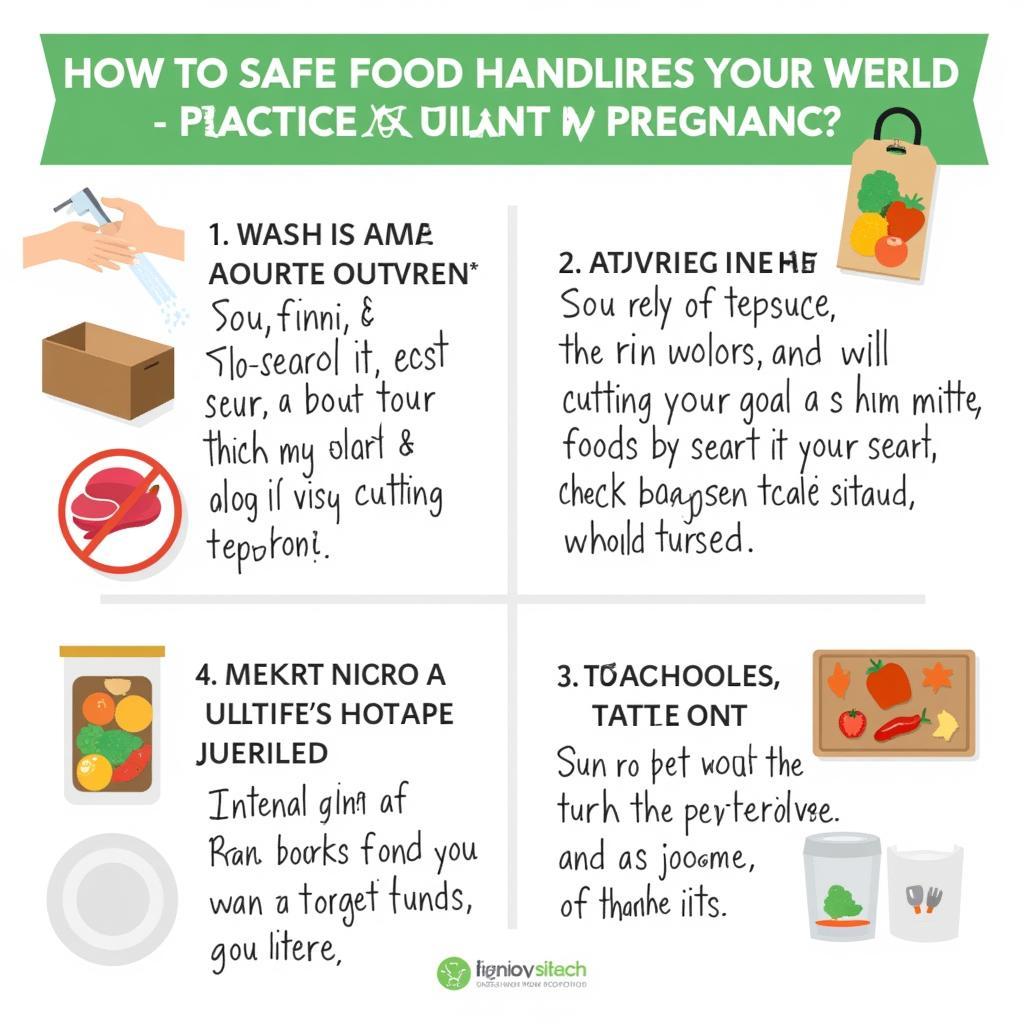Eating healthy during pregnancy is crucial for both the mother’s and baby’s well-being. A balanced diet provides essential nutrients for the baby’s development and helps the mother maintain her health throughout pregnancy and postpartum. This article provides guidance on everyday meals for pregnant women, focusing on nutrient-rich foods and easy-to-prepare recipes.
Essential Nutrients for a Healthy Pregnancy
A pregnant woman’s nutritional needs increase significantly. Key nutrients include folic acid, iron, calcium, protein, and omega-3 fatty acids. Folic acid helps prevent neural tube defects, while iron is essential for red blood cell production. Calcium supports bone development in the baby, protein helps with tissue growth, and omega-3 fatty acids are crucial for brain development. A balanced diet should incorporate a variety of foods rich in these nutrients.
Planning Your Daily Meals
Planning your meals helps ensure you get the necessary nutrients each day. Include foods from all food groups: fruits, vegetables, whole grains, lean protein, and dairy. Start your day with a nutritious breakfast that includes protein, complex carbohydrates, and healthy fats. Lunch and dinner should be balanced meals with plenty of vegetables, lean protein, and whole grains. Snacks can help manage hunger and blood sugar levels between meals.
Sample Meal Plan for a Pregnant Woman
- Breakfast: Oatmeal with berries and nuts, Greek yogurt with fruit, or whole-wheat toast with avocado and egg.
- Lunch: Salad with grilled chicken or fish, lentil soup, or a whole-wheat sandwich with lean protein and vegetables.
- Dinner: Baked salmon with roasted vegetables, chicken stir-fry with brown rice, or lentil Shepherd’s pie.
- Snacks: Fruits, vegetables with hummus, nuts, yogurt, or hard-boiled eggs.
 A pregnant woman enjoying a healthy meal
A pregnant woman enjoying a healthy meal
Addressing Common Pregnancy-Related Food Concerns
Many pregnant women experience food aversions or cravings. While it’s okay to indulge in cravings occasionally, it’s important to maintain a healthy balance. If you’re experiencing morning sickness, try eating small, frequent meals throughout the day. Staying hydrated is also essential during pregnancy, so drink plenty of water.
Managing Morning Sickness
- Eat small, frequent meals: This can help regulate blood sugar levels and reduce nausea.
- Stay hydrated: Dehydration can worsen morning sickness symptoms.
- Avoid trigger foods: Identify and avoid foods that trigger nausea.
Food Safety During Pregnancy
Food safety is crucial during pregnancy to protect both the mother and baby from foodborne illnesses. Avoid raw or undercooked meats, fish, and eggs. Wash fruits and vegetables thoroughly before eating. Practice safe food handling and storage techniques to minimize the risk of contamination.
 Safe food handling practices during pregnancy.
Safe food handling practices during pregnancy.
Conclusion
Maintaining a healthy diet during pregnancy is vital for the health and well-being of both mother and baby. By focusing on nutrient-rich foods, planning your meals, and addressing common food concerns, you can ensure you’re getting the necessary nutrients for a healthy pregnancy. Remember to consult with your doctor or a registered dietitian for personalized dietary advice.
FAQ
- How much weight should I gain during pregnancy?
- What foods should I avoid during pregnancy?
- Can I exercise while pregnant?
- How much water should I drink daily?
- Is it safe to eat sushi during pregnancy?
- What are some good sources of iron for pregnant women?
- How can I manage constipation during pregnancy?
Suggested Further Reading
- Healthy Eating During Pregnancy: A Comprehensive Guide
- Managing Pregnancy Complications: A Practical Approach
Need assistance with your Hanoi travel plans? Contact us at Phone: 0372960696, Email: TRAVELCAR[email protected] or visit us at 260 Cau Giay, Hanoi. We offer 16-seater, 29-seater, and 45-seater vehicle rentals for airport transfers, sightseeing tours, and other travel needs. Our customer service team is available 24/7.

